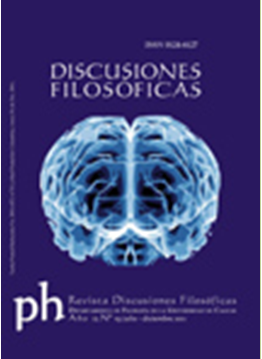Authors
Abstract
In general, those who support the providentialist interpretation of Adam Smith's invisible hand hold that those individuals lead by an invisible hand have certain qualities that are expected to reach certain beneficial ends for society. This would be, neither more nor less, the sense of the famous Smithean expression. In this paper, I will show, on the contrary, that in the invisible hand passage in The theory of moral sentiments those lead by an invisible hand do not have the qualities that are expected to reach the beneficial ends. So, the providentialist interpretation cannot explain how the qualities of the landlords (those lead by an invisible hand) can reach the beneficial ends (the distribution of the necessary goods for life).
References
Alvey, J. Adam Smith: optimist or pessimist?: a new problem concerning the teleological basis of commercial society. Aldershot: Ashgate Publishing Limited, 2003. Print.
---. “The secret, natural theological foundation of Adam Smith’s work”. Journal of Markets and Morality 7. (2) 2004: 335-361. Print.
---. “The ‘new view’ of Adam Smith and the development of his views over time”. G. Cockfield, A. Firth & J. Laurent. New perspectives on Adam Smith’s The Theory of moral sentiments. Cheltenham: Edward Elgar, 2007. Print.
Campbell, T. Adam Smith’s science of morals. London: Allen & Unwin, 1971. Print.
Clarke, P. “Unity in the influences on Adam Smith”. History of Economics Review 36. 2002: 10-25. Print.
Cropsey, J. Polity and Economy: an interpretation of the principles of Adam Smith. The Hague: Martinus Nijhoff, 1957. Print.
Denis, A. “The invisible hand of God in Adam Smith”. Research in the history of economic thought and methodology 23. (1) 2005: 1-32. Print.
Dwyer, J. The age of the passions: an interpretation of Adam Smith and Scottish enlightenment culture. East Linton: Tuckwell Press, 1998. Print.
Fitzgibbons, A. Adam Smith’s system of liberty, wealth, and virtue: The moral and political foundations of the wealth of nations. Oxford: Oxford University Press, 1995. Print.
Griswold, C. Adam Smith and the virtues of enlightenment. Cambridge: Cambridge University Press, 1999. Print.
Hill, L. “The hidden theology of Adam Smith”. European Journal of the History of Economic Thought 8. (1) 2001: 1-29. Print.
Kleer, R. “The Role of teleology in Adam Smith’s wealth of nations”. History of Economics Review 31. 2000: 14-29. Print.
Macfie, A. The individual in society. London: Allen & Unwin, 1967. Print.
Raphael, D. Adam Smith, past masters. Oxford: Oxford University Press, 1985. Print.
Schabas, Margaret. “Adam Smith’s debts to nature”. History of Political Economy 35. (1) 2003: 262-281. Print.
Sher, R. Church and university in the Scottish enlightenment. Edinburgh: Edinburgh University Press, 1985. Print.
Skinner, A. “Economic theory”. A. Broadie. The Cambridge companion to the Scottish enlightenment. Cambridge: Cambridge University Press, 2003. Print.
Smith, A. Correspondence of Adam Smith. Oxford: Oxford University Press, 1977. Print.
---. Lectures on Jurisprudence. Oxford: Oxford University Press, 1978. Print.
---. La teoría de los sentimientos morales. Madrid: Alianza, 1997. Impreso.
---. Investigación sobre la naturaleza y causas de la riqueza de las naciones. México: Fondo de Cultura Económica, 1999. Impreso.
Veblen, T. “The preconceptions of economic science”. The Quarterly Journal of Economics 13. (4) 1899: 396-426. Print.
Viner, J. “Adam Smith and laissez faire” The Journal of Political Economy 35. (2) 1927: 198-232. Print.
Vivenza, G. Adam Smith and the classics: the classical heritage in Adam Smith’s thought. Oxford: Oxford University Press, 2001. Print.

 PDF (Español)
PDF (Español)
 FLIP
FLIP
























